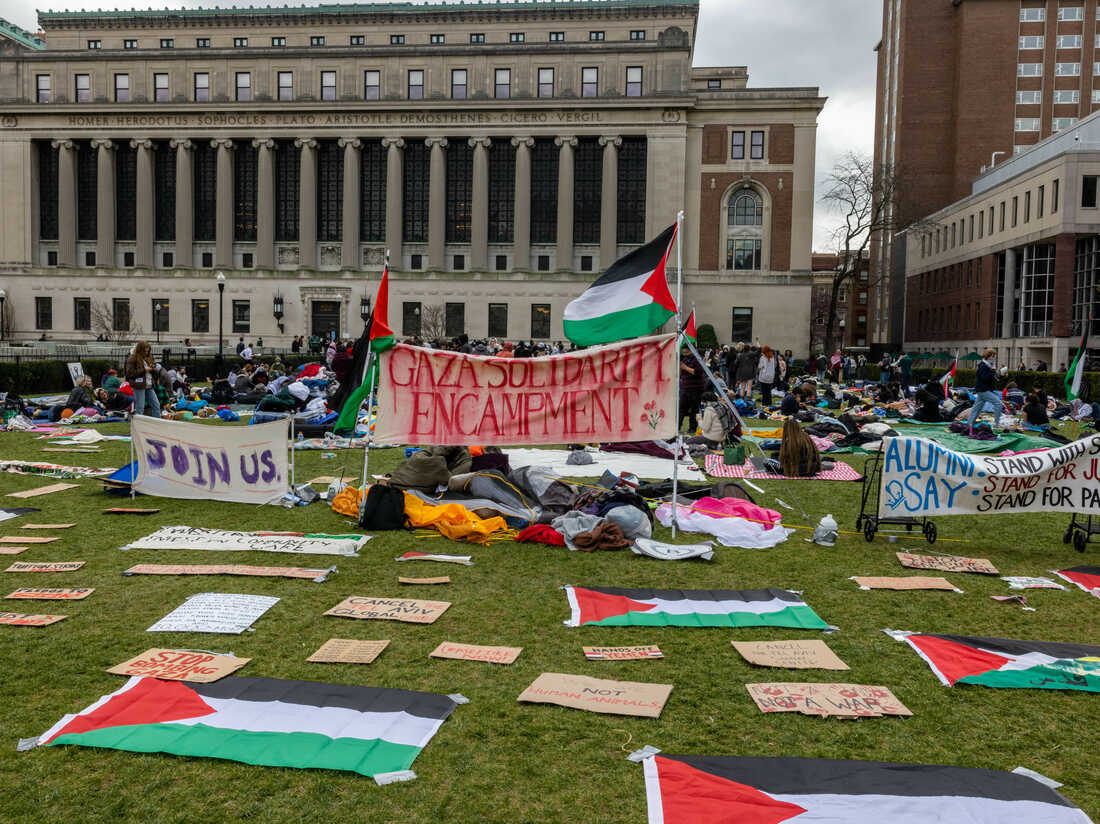On March 9, Columbia University graduate student Mahmoud Khalil was arrested in Manhattan in an apartment owned by the university. Khalil was arrested and detained by the U.S. Immigration and Customs Enforcement (ICE), however, he is a permanent resident with a green card and is also currently married to a United States citizen. As of April 11, Khalil is currently being held in an ICE processing center located in Louisiana, a facility over 1,000 miles from where he was initially arrested. He also has not been publicly charged with any crime by ICE or the Trump administration.
Khalil had previously taken a part of the Pro-Palestinian demonstrations that took place through April and June last year, and had served as a negotiator for students with the university. Trisha McLaughlin, a spokesperson for the Department of Homeland Security claims that Khalil’s arrest is meant to satisfy President Trump’s desire to combat anti-semitisim, especially on university campuses. Khalil now faces possible deportation by the Trump Administration under the Immigration and Nationality Act, which allows the deportation of individuals deemed to be a threat by the Secretary of State. As of April 11, an immigration judge in Louisiana sided with the Trump administration and permitted the deportation of Khalil on grounds of being a threat to foreign policy.

Green card holders like Mahmoud Khalil possess nearly all the same legal protections as U.S. citizens—with a few notable exceptions. While there are certain limitations on voting in federal elections and additional scrutiny during legal proceedings involving national security or immigration violations, green card holders are otherwise entitled to due process under the law. This includes access to legal representation, protection from unlawful detention, and —crucially—the First Amendment right to free speech.
According to legal experts and advocates, Khalil’s detainment raises urgent questions about how immigration laws are being applied and whether political activism is being weaponized against non-citizens. To better understand the legal implications of Mahmoud Khalil’s case, we spoke with AP American Government and Politics teacher Ms. Bollinger about the evolving relationship between immigration law and constitutional freedoms. “Historically, the courts have treated green card holders almost the same as U.S. citizens,” says Ms. Bollinger. “And so that’s why I think a lot of people were looking at this and were surprised.”
Furthermore, the American Civil Liberties Union (ACLU) has reportedly taken up the case, reflecting broader concerns about civil liberties. The organization has a long history of defending free speech rights regardless of political affiliation. “They will take almost any type of freedom of speech case, anything pertaining to your rights. And the ACLU will do that for anyone. And also, everybody has the right to free speech. And the courts have interpreted that as being everyone. They’ll protect people on the conservative end of the political spectrum, and on the liberal side,” Ms. Bollinger stated, emphasizing the broad protections guaranteed under the First Amendment.
The case has unfolded alongside a broader federal review of university responses to campus protests over the Israel-Hamas conflict. Several universities, including Columbia, have faced potential federal funding freezes since the arrest due to concerns over alleged antisemitism on campus. Some political commentators argue that these funding threats are part of a wider effort to exert control over higher education. Columbia University has since complied with federal demands—as the university relies on federal funds for both research and hospital operations—agreeing to change student protest policies, tighten security, and create a formal definition of antisemitism that will be used by the university. Columbia now faces the possibility of a consent decree, a legal agreement between two parties under the ratification of a judge, which would force the university to uphold these policies.
Khalil’s arrest stands at the intersection of immigration policies, freedom of speech, and rising federal reproval of dissent from universities. As legal challenges unfold and national advocacy groups fight for civil liberties, Khalil’s case may set a precedent for the extent to which the government can target non-citizens engaging in political activism. With universities facing pressure to align with federal narratives and green card holders navigating an increasingly uncertain legal landscape, Mahmoud Khalil’s detainment is more than an individual case—it is a test of the constitutional principles that serve as the foundation of American democracy.


